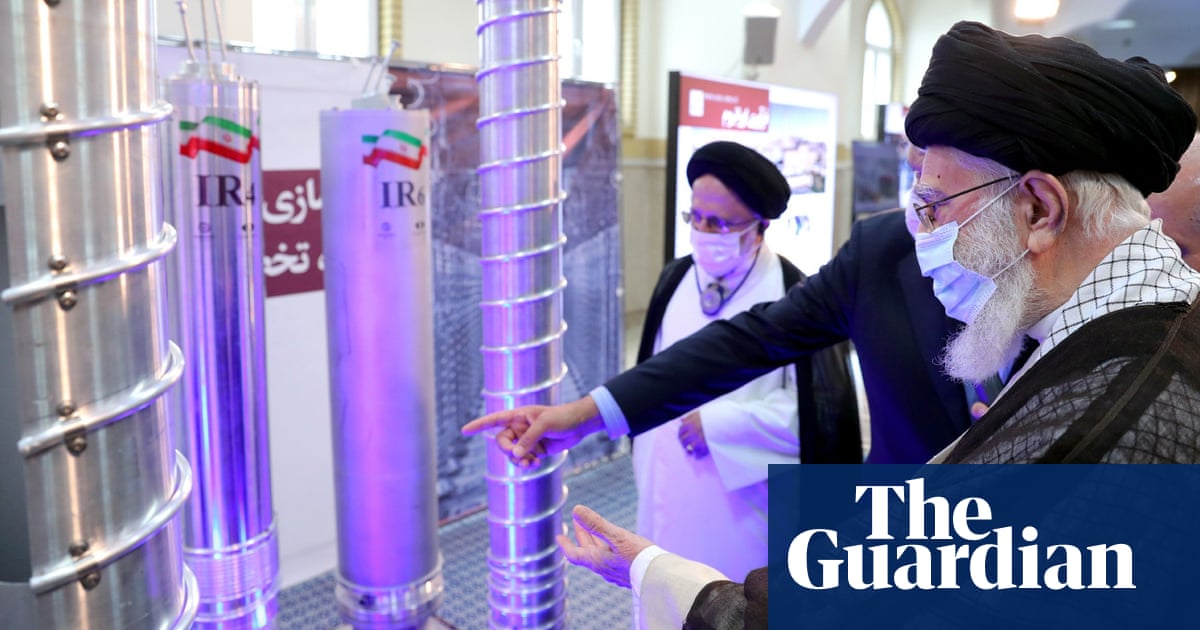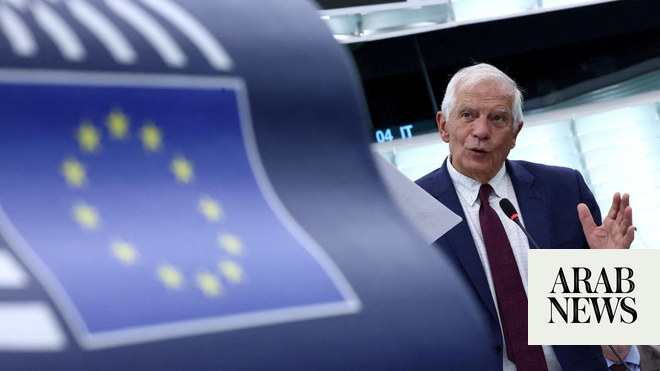
European foreign ministers from Germany, France and the UK have met to discuss a joint approach with the incoming Joe Biden administration on reviving the Iranian nuclear deal.
The three nations, whose ministers met in Berlin, are hoping Tehran can reach an agreement under which the US would lift its crippling sanctions in return for Iran ending its non-compliance with the 2015 agreement constraining its nuclear activities.
German officials added Europe would consider its response if Donald Trump in the dying days of his administration mounted a surprise attack on Iran’s nuclear sites.
Biden, the US president-elect, has said he wants the US to rejoin the Joint Comprehensive Plan of Action or JCPOA, the formal term for the Iran deal signed in 2015, if Iran ends its acknowledged breaches of the agreement, including the excess stockpiling of enriched uranium.
Germany, France and the UK, known as the E3, issued a strong joint condemnation last week of Iran’s latest breaches, including the use of more advanced centrifuges.
Gathering at a government villa outside Berlin, the foreign ministers Heiko Maas of Germany, Jean-Yves Le Drian of France and Dominic Raab of the UK met to discuss “what a further approach involving all signatories to the JCPOA, and perhaps also with a new US administration, could look like”, according to German officials.
One diplomat said the aim was to get the JCPOA back to its original purpose – curtailing Iran’s nuclear programme.
Formal talks between the Biden team and Europe cannot yet start, but the E3 has been urged to act as a mediator between the US and Iran, where a heated debate is under way about how to view the Biden administration’s intentions.
Some European officials are advising it may be easier for the EU to mediate an understanding whereby Iran quickly ends its breaches of the agreement and the US president lifts its economic sanctions by executive order. The agreement could temporarily be reached with or without the US formally returning to the JCPOA.
There may be barriers to such a quick formal return to the agreement, however, if Iran were to demand watertight mutual guarantees of future compliance, and possible US compensation for imposing sanctions. The US, for its part, may require Iran agree to update and broaden the 2015 agreement to include Iran’s missile programme and Iran’s relations with its neighbours, such as Saudi Arabia.
The Iranian foreign minister, Javad Zarif, last week suggested Iran might need guarantees before letting the US rejoin the old JCPOA.
The former EU chief negotiator Federica Mogherini advised the US not to try to negotiate an updated JCPOA too quickly. Speaking at a European Leadership Network event, she said: “I don’t see the possibility of moving on to new elements unless and until JCPOA is fully implemented by both sides. I think this is the starting point and I think we would be mistaken and under a very serious illusion if we were thinking of doing this the other way around.”
Wendy Sherman, the US lead negotiator on the Iran deal between 2011 and 2015, admitted last week: “The nuclear deal is barely hanging on by a thread” in the last months of the Donald Trump administration. “We are in a really tough, tough place where it appears President Trump is trying to create as many chips on the side of the US and Iran is trying to create as many chips on the side of Iran before the new administration arrives,” she said.
Sherman said she believed the Biden team needed to start consultations very quickly with European partners. “Biden has said if Iran is ready to come back into compliance, the US is ready to re-enter, but getting from here to there is complicated,” she said. “Everything is not going to fall back into place on day one.”
She advised that the window for gaining any traction may be quite short because Iran is holding its own presidential elections in June. She predicted that conservative hardliners will do well in those elections, making talks more difficult.











